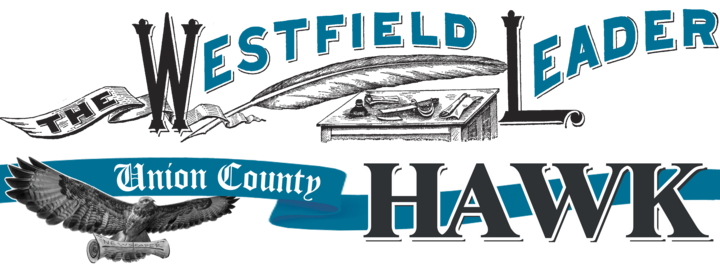WESTFIELD — In its more than 250 years of documented history, the Town of Westfield has borne witness to two world wars, the end of slavery, vast technological advancements, floods, political demonstrations, the Great Depression, the loss of residents in a terrorist attack, and even two global pandemics. But even with so many major events under its belt, the story of Westfield, and all small towns, is best told through the eyes of the people who have lived here.
Now, thanks to the efforts of the Westfield Memorial Library, local history buffs have a new opportunity to take a deep dive into genealogy reports, letters, maps, town documents, photographs, newspapers and even old high-school yearbooks.
Over the course of the past several months, the library has been working to convert an under-utilized storage room on the second floor into an organized archive dedicated to local history and research.
“This room was always supposed to be used for this purpose, but over the years it just sort of turned into a hodgepodge of filing cabinets and random stuff,” said the library’s director, Allen McGinley. At one point, the room also experienced what Mr. McGinley called “a bit of an HVAC disaster.”
“Going through those filing cabinets was like being on a treasure hunt,” said Jennifer Schulze, who serves as the library’s head of adult services. “Everything was remarkably well-preserved, all things considered, but I’m glad that we were finally able to catalog everything and figure out a more productive and accessible way to store it.”
Now, the room, which is already being used by genealogical research groups and local historians, is outfitted with conference tables, a large-screen TV, internet access, shelves of local-history books, and protective cabinets that will serve to better preserve sensitive documents.
Visitors who might want to explore the history of the Westfield region from the comfort of home also can access the library’s digital archive, which contains, among other resources, a digitized catalog of The Westfield Leader that dates back to the early 1900s.
In addition to giving readers a snapshot perspective into everyday life in Westfield at the turn of the last century, every edition also contains original advertisements for local businesses that have long-since ceased to exist, like The Red Star Tavern (a boarding house that had as its only listed address “across from the golf links”), Hahne and Company (which would eventually become Lord & Taylor), Cuba Roma (where patrons could “get 50 cents worth of cigars for 25 cents”) and H.L. Finks, which supplied the town with surreys, horseshoes and various other equestrian necessities.
And of course, the paper, which has been independently owned and operated since 1890, also features stories, articles and editorials about everything that was happening in the community at the time.
In 1919, for example, the Westfield Council heard two hours of testimony from residents about whether or not dogs should be forced to wear muzzles while running free throughout the community.
Another story, printed on January 8, 1920, raises concerns about a local man and the proprietor of a Mountainside inn, who allegedly “up and disappeared without a trace” after walking out of his home one evening with about $1,000 in his pockets.
On December 11, 1941, three days after Pearl Harbor was attacked, the headlines read, “Many Westfield Men Face Attack In War Zone,” “More Men Sought For Draft Board,” and “Local Defense Council To Launch Air Raid Siren Drills.”
From major headlines to community features, the list goes on and on.
“We are thrilled to be able to provide this resource to the community,” Ms. Schulze said. “It’s really easy to lose yourself in these archives, and we hope people take the chance to enjoy them as much as we do.”
Residents who would like to visit the library’s local history room should call ahead to avoid scheduling conflicts with other groups or patrons.
The library’s digital archive, which also contains recorded oral histories, books and city directories, among other resources, can be accessed online at https://wmlnj.org/.



